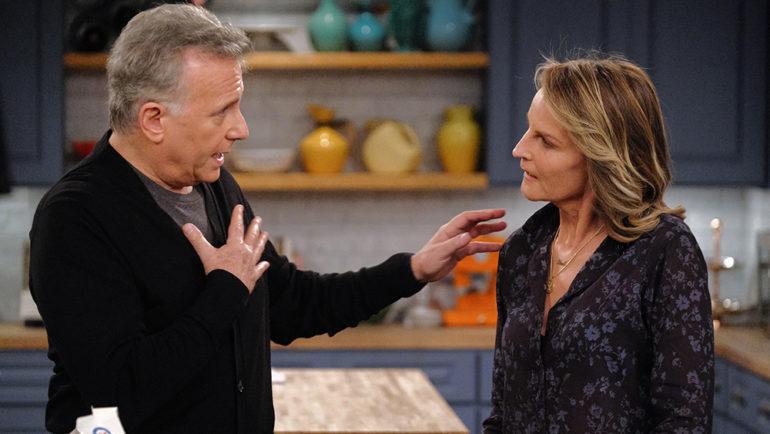TV Review: ‘Mad About You’ Reboot
By Daniel D’Addario
LOS ANGELES (Variety.com) – “Mad About You” would seem an unlikely show to reboot: Unlike fellow 1990s NBC comedy hits “Frasier,” “Friends,” and “Seinfeld,” it’s had no meaningful second life on streaming, and its central story, of a couple living together in New York, is hardly one that feels either proprietary to the show or urgently in need of restaging. Which makes the “” reboot, to air exclusively on Spectrum cable systems, a pleasant surprise. It is by its nature unoriginal, and it has little, really, to say about its moment — while most recent reboots have drilled down on aspects of politics in the late 2010s. But in allowing its characters to float unaffected through a soundstage version of lower Manhattan, it feels easygoing, at least.
It’s not much, but it’s more than can be said for reboots of “Will & Grace,” “Roseanne,” and “Murphy Brown,” all of which felt strained and pinched by their need to comment on the political moment, sacrificing characters and tone in the process. “Mad About You” was never that show — it’s a pleasantly solipsistic piece of work about two wealthy and blissfully unaffected New Yorkers. Viewed a certain way, this show about people with no real problems but the ones they create for themselves is “Seinfeld” without the misanthropy.
The little problems Jamie and Paul Buchman (Helen Hunt and Paul Reiser) create can be, at times, a bit too much to bear. The first episode of the reboot concerns Mabel Buchman, the couple’s daughter (now played by Abby Quinn) and a freshman at NYU. (It’s worth briefly noting that, like the “Will & Grace” and “Roseanne” reboots, this one completely discards disruptive plot developments in the show’s finale in order to situate us back in the heart of the story.) Though she is attending college but blocks away from the Buchmans’ mansion of an apartment, the pair dig into newfound personae as empty-nesters once she’s gone, with Jamie obsessively dropping in on her daughter in order to make points in an ongoing argument.
Is it groundbreaking? No. But the story is solidly enough built to distract from certain annoying contrivances of sitcom-making that would be less present today, perhaps. (Class is still not sufficiently dealt with on TV, but I don’t know that a new sitcom family would have quite as much unexamined wealth as the Buchmans now.) Reiser and Hunt retain an amiable chemistry, and Hunt — too little seen in recent years — especially makes a compelling case for her continued stardom. She makes neuroses, then as now, seem less like a curse and more like a side effect of thoughtfulness. There could be far worse company for some half-hour stints, and there have certainly been companions who’ve aged less well in their time offscreen. “Mad About You” stayed itself, for worse and better; by the standards of the modern reboot, that’s accomplishment enough.

